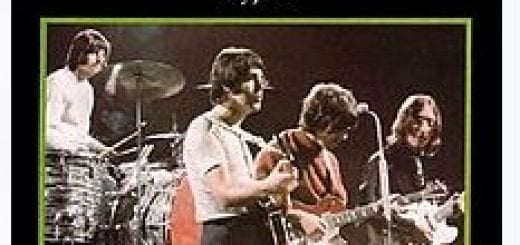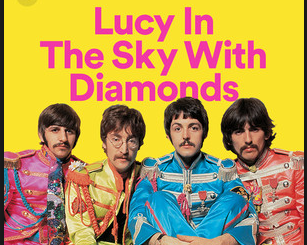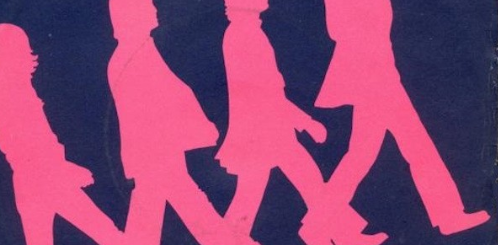I Don’t Want to Spoil the Party by The Beatles Lyrics Meaning – Unraveling the Nostalgic Heartache
Lyrics
I would hate my disappointment to show
There’s nothing for me here so I will disappear
If she turns up while I’m gone please let me know
I’ve had a drink or two and I don’t care
There’s no fun in what I do if she’s not there
I wonder what went wrong, I’ve waited far too long
I think I’ll take a walk and look for her
Though tonight she’s made me sad
I still love her
If I find her I’ll be glad
I still love her
I don’t wanna spoil the party so I’ll go
I would hate my disappointment to show
There’s nothing for me here so I will disappear
If she turns up while I’m gone please let me know
Though tonight she’s made me sad
I still love her
If I find her I’ll be glad
I still love her
Though I’ve had a drink or two and I don’t care
There’s no fun in what I do if she’s not there
I wonder what went wrong, I’ve waited far too long
But I think I’ll take a walk and look for her
With a title that seems to wear its heart on its sleeve, ‘I Don’t Want to Spoil the Party’ by The Beatles might first appear as a straightforward anthem of self-pity and withdrawal. However, nestled within the band’s prolific canon, this less-frequently-lauded track from their 1964 album ‘Beatles for Sale’ hums with a subdued complexity that echoes the universal theme of personal heartache against a social backdrop. The song is an eloquent testament to the group’s emerging lyrical depth during a period often overshadowed by their mop-top image and pop hits.
Delicately poised between the joviality of early pop-rock success and the burgeoning maturity that would come to characterize their later work, ‘I Don’t Want to Spoil the Party’ offers fans a bittersweet taste of melancholy wrapped in a deceptively simple package. Beneath the rhythm guitar jangles and the harmony-rich chorus lies a narrative rich in emotion and rife with the poignant introspection that became a staple of the band’s evolving artistry.
The Lonesome Strummer: The Beatles’ Brush with Melancholy
It’s a classic Beatles’ blend: the toe-tapping beat juxtaposed with mournful lyrics. In ‘I Don’t Want to Spoil the Party,’ we are met with the image of a solitary figure at a festive gathering, nursing a drink and a bruised heart. It’s a subtle exploration of the socially endorsed need to mask one’s true feelings – a poignant reminder that behind many a smiling face at the party may lie hidden sorrows. The track stands as a less conspicuous yet strikingly resonant exploration of how we navigate the dichotomy of public cheer and private despair.
The jangling, country-inspired guitar work masks the somber narrative that unfolds, of love awaited and unreturned. John Lennon’s and Paul McCartney’s harmonized crooning casts a veil of sweetness over the deep-seated frustration and longing articulated in the words. The song serves not only as a vessel for storytelling but also embodies the push-pull between keeping up appearances while contending with inner turmoil.
Reading Between the Chords: The Song’s Hidden Meaning
While the song allows listeners to empathize with the protagonist’s plight, it also invites a deeper reading into the nature of disappointment and self-preservation. The decision to leave the party is both a literal and metaphorical action – it’s an escape from a space of joy that one cannot fully partake in due to personal grief, but it’s also a metaphor for withdrawing into oneself, a defense mechanism against further emotional injury.
At its core, ‘I Don’t Want to Spoil the Party’ uncovers the subtle truth that sometimes one must step away to preserve the whole, even when that means facing solitude. This resonates beyond the literal party setting, suggesting insights into social dynamics and the often-unspoken need for self-care in the face of collective expectations.
Unsung Poetry: Memorable Lines that Sting with Truth
The lines, ‘I’ve had a drink or two and I don’t care / There’s no fun in what I do if she’s not there,’ speak volumes in their simplicity. They reveal the link between the physical act of imbibing, often a social lubricant and a numbing agent, and the gnawing absence that renders the merry environment vacant. The protagonist’s admission of not caring underlines a disconnection not only from the party but from the self that yearns to enjoy it.
In its plaintive confession, the song gives voice to the universal ache of unrequited love – the kind that lingers and colors one’s entire being, transforming even the most spirited of gatherings into a hollow exercise. The Lyrics’ honest delivery is what makes the track reverberate years beyond its release, striking a chord with anyone who has ever felt adrift amidst the revelry.
Echoes of Loneliness: The Beatles’ Early Brush with Depth
This song, sandwiched in a period where The Beatles were churning out hits at a remarkable pace, is a stark reminder of the emotional depth the band was capable of injecting into their music. The interplay between thematic weight and the lightness of the tune reflects a dexterity and a maturity, pointing towards the more introspective directions the band would take in subsequent years.
The lyrical content serves as an antecedent to the more complex and nuanced songs that would later define the band’s oeuvre. In ‘I Don’t Want to Spoil the Party,’ the seeds of the soul-searching and artistry that would bloom in their later works, such as ‘Eleanor Rigby’ and ‘Yesterday,’ are already evident, making it a subtle yet essential piece in understanding The Beatles’ artistic growth.
A Whisper in the Roar: The Lasting Resonance of a Subdued Anthem
Despite not achieving the vaunted status of some of their bigger hits, the understated ‘I Don’t Want to Spoil the Party’ endures as a significant testament to The Beatles’ songwriting prowess. It acts as a milestone, marking the transition from their pop beginnings to a more contemplative, introspective style. The song’s ability to evoke emotion and introspection with such a basic, yet heartfelt narrative showcases the powerful simplicity that The Beatles harnessed expertly.
Perhaps one of the most compelling aspects of the song is its relatability. It speaks to a universal experience, one that transcends the specifics of time and place. Long after the party is over, the echoes of that lonesome exit continue to resonate, reminding listeners of the bittersweet realities of the human heart. ‘I Don’t Want to Spoil the Party’ may not spoil the party, but it certainly enriches the vast tapestry of music history with its quiet brilliance.








